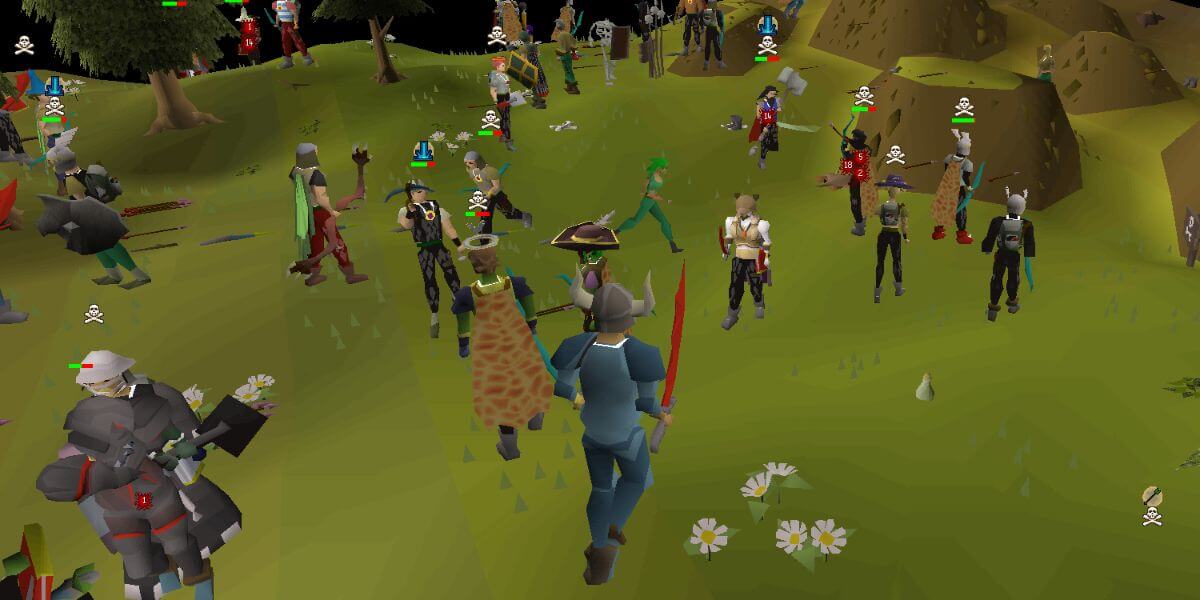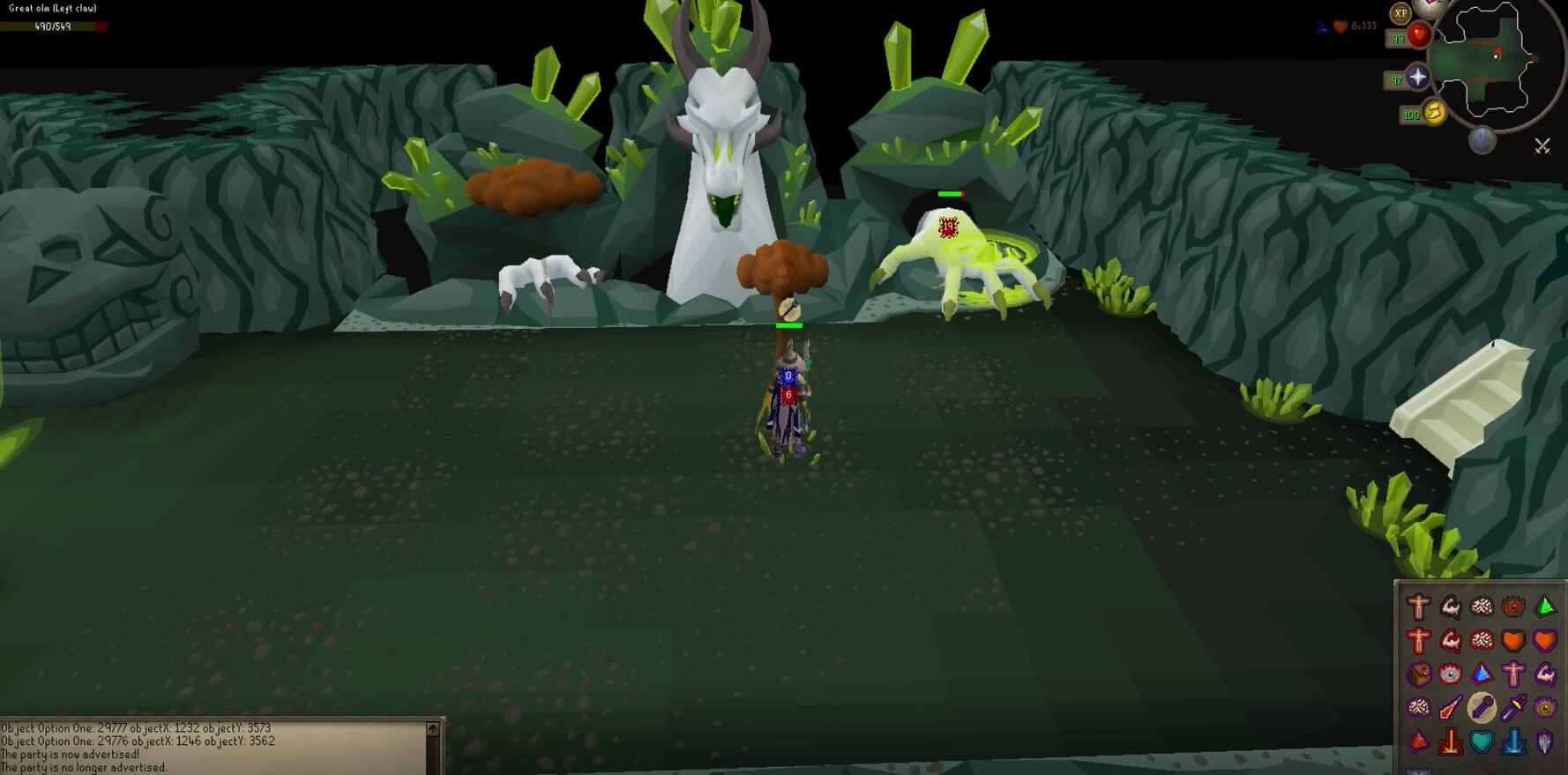Coming Full Circle: Some People Just Want Simplicity!

By, Kieren Charles, Associate Design Director, Old School RuneScape
Excitement and expectations surrounding the trajectory of gaming are covered in great detail, chief among them how the latest digital technology brings the most advanced experiences to gamers. However, despite living in a technologically advanced era, not everyone is looking for breathtaking graphics and the best technology - for a whole bunch of reasons.
First and foremost, not everyone has the pleasure of accessing those experiences. They might not want to fork out hundreds of pounds for the latest VR headset, or wait months to upgrade their systems because graphics cards are in such high demand.
On top of that, we went through two years of hardship where we were mostly stuck inside looking for any and all ways to ‘escape’. In that time players naturally gravitated towards games more than usual, with a notable breakout being Animal Crossing. It became a quarantine cultural phenomenon giving players control over an idyllic island with fun daily tasks, simple charming graphics, and quirky neighbours.
In our increasingly digital first world it can often feel like the latest high-tech hardware is being pushed on us, or that the idea of cavorting in virtual worlds is an inevitability. It’s a complicated and overwhelming time - and not everyone wants to take part. In fact, there are droves of gamers that just want to play their favourite old-school titles, and there’s no harm in that either. Simplicity is not the enemy of good.

Not everyone wants cutting edge graphics!
The Gamer / Engagement Correlation
A growing demographic of gamers opt for retro, classic and throwback games, which are - at their core - based on simple design, easy-to-run graphics, and often deep-seated nostalgia. It’s all about storyline, gaming with friends, levelling characters and having simple fun without all the additional bells and whistles. In short, connections. There’s something incredibly gratifying and memorable about these kinds of games, and it’s why gamers return to them repeatedly over their lives.
If we look at the four types of game players, outlined by Dr Richard Bartle In the 1990s, we can see why. There are the Achievers, the Socialisers, the Explorers and the Killers, and a common thread among the first three of these four types respond well to the more ‘chilled out’ features of old-school MMOs. For that reason, MMOs have become a go-to outlet and have provided a safe escape for many people.
Take, for example, World of Warcraft Classic, which runs alongside the main-line of the game. To the delight of long standing players it gave them a chance to play WoW in the state it was in before the release of its first expansion. Blizzard is also letting players re-experience launches of early expansions so that they can return to the good old days. Jagex’s MMORPG RuneScape does something similar but in its own unique way. Old School RuneScape, the quintessential nostalgia MMO, is unique because it updates with never before seen content updates, but with the caveat that every update stays true to the familiarity that players have come to expect.
Old School RuneScape still has the retro graphics that were a hit back in 2007 when the game “branched off” and scratches the itch that modern games just can’t. It takes players back to their childhood homes, internet cafes and school libraries where they first played and adventures for hours on end. It doesn’t rely on flashy graphics, doesn’t force players to upgrade their systems with the latest hardware, and instead allows them to log on and experience those comforting visuals, core gameplay loops and tunes that might have been the soundtrack to their youth.

WoW Classic Practically Doubled WoW's Active Playerbase
The Role of Nostalgia
Nostalgia is a powerful tool, and we know this because we've seen remake after remake of many popular IPs that first emerged in our childhood years. Some of these have had sequels, prequels and reimaginings made to reignite that interest from current players and entice new players into the franchise. Players love to experience that excitement again and revisit the games that help them unlock fond memories.
This plays a significant role in our own design philosophy. Many players from the mid-2000s returned to RuneScape years later, and every so often we see the reaction of "Wow, RuneScape is still thriving! I've got to check that out!". They are keen on the fact that OSRS has the old “life” systems of three lives and then game over. Modern games and remakes of classics forgo that kind of feature, with good reason of course. However, there are a totally different set of player expectations now and it’s one of the things we can do for players to help them avoid the frustration of having to start over and over again.
So not only is nostalgia still here, but it's even still growing and has a lot of potential. Moves like publishing the game on mobile platforms has allowed us to meld nostalgia and simplicity with modern accessibility. Nostalgia cannot carry any game alone, though. If it were nostalgia alone, deliberately retro or “classic” games would be a short blip, wherein players would check it out for a few days, then move on again. No matter how strong the aforementioned connection is with simple games, or with the communities around them, it counts for little if the game itself isn’t mechanically engaging.

RuneScape is Available on Mobile, Steam, and its own Website
What are the Benefits?
Creating simplicity in games depends on building easily understood mechanics. The most interesting gameplay situations can come by combining multiple simple systems, creating depth and complex scenarios that can still be easily understood by the player. On top of that, it avoids over complication, and the knock-on effect over complications, which almost always results in player dissatisfaction.
Bungie, the creator of Destiny 2, experienced this upon announcing a transmog system that would allow players to add one armour’s gameplay stats to another armour’s cosmetic appearance. Simple. To make use of this feature, players would have to collect and trade a number of resources. Complicated. And players were vocal about why this system made them unhappy.
This doesn’t mean that all updates and changes are problematic, and there are ways to still reap the benefits of simplicity while developing new concepts and bringing exciting games to fruition. Pokémon GO is an excellent example with its engaging gameplay, exciting creatures, and nostalgic throwbacks that we remember from early versions of the game. It really won the hearts of a modern audience with its simplicity and ability to be played on the go on mobile devices. It doesn’t need a lot of processing power and it isn’t terribly complicated, and it hit the sweet spot for Pokémon fanatics when it hit the market in 2016.
To pull an example from our own work at Jagex - I’m particularly fond of the Great Olm boss fight in OSRS's Chambers of Xeric. All of the Olm's mechanics are relatively straightforward; it is obvious how the player should deal with each one. The depth and engagement comes from many of these simple mechanics being layered together, putting the player in different scenarios. This has created a part of the game that players love to this day because it is so mechanically interesting.

Great Olm, one of the coolest fights in OSRS
How Can Game Designers Take the Simple Route?
It is easy for a designer to be fooled into a path of complexity, with all the aforementioned bells and whistles and high-octane gameplay. The best way around this is if developers force themselves to look back at what they’ve created, simplify it, and focus and develop the core central strong idea and make that better.
One of the best ways to do this is to get up close and personal with the players. Players, rather than playtesters. There is nothing more telling than getting feedback from those that have played since the start of time, hearing about what they enjoy and what has kept them coming back year after year.


